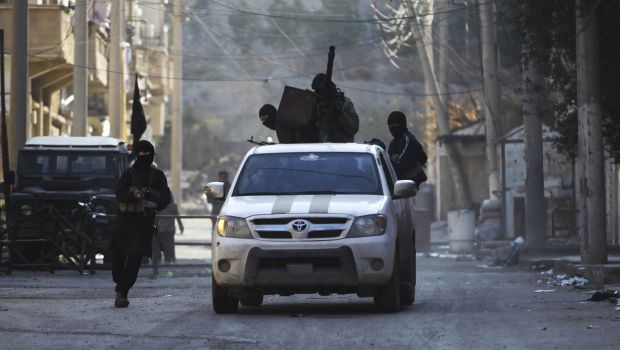The Israeli government should not have shelled Hezbollah posts and is mistaken in defining the group as an enemy.
This is the opinion of columnist Guy Bechor, writing in the Israeli daily, Yedioth Ahronoth.
Bechor believes that President Bashar Al-Assad currently only governs one-fifth of Syria, and that Israel has plans, and the necessary power, to confront Shi’ite terrorists—though not their Sunni counterparts.
In reality we are not concerned about this kind of impoverished thinking, as it represents the analysis of someone who does not seem able to differentiate between the details on the ground. Contrary to Bechor’s argument, it would be good if Israel also targeted the Islamic State of Iraq and the Syria (ISIS), the Al-Nusra Front, and the other extremist groups. It is Assad’s regime itself that facilitated the emergence of such parasites vying, against the Syrian revolutionaries, for control of the country. These extremist groups have succeeded in turning the revolution into a sectarian war and have distorted the image of many Syrians taking part in the uprising.
Bechor writes: “the Syrian territory in the Golan Heights is already filled with Salafi Sunni terrorist forces. In the whole of Syria they include tens of thousands, and they are continuing to multiply . . . There is already a jihadist Sunni country from Baghdad to our fence in the Golan. Until now, these forces were busy fighting the regime’s army, but they are slowly taking over additional territories and finding time for Israel. If that is the case, is it possible that Israel is pointing an accusing finger at the wrong side? . . . Because against Hezbollah or the Assad army we still have a deterrence ability, but against the Salafis there is zero deterrence. That is the situation in Sinai, in the Red Sea and in the Gaza Strip.”
Syria will be the biggest threat to Israel after it has been its top silent ally and its secure line of defense for 40 years. The threat stands, regardless of whether Assad remains in power or not.
If Assad survives, he will remain weak and in control of only limited areas. The situation will be the same if the conflict and extremist groups like ISIS take control of important geographical zones. Israel’s interest lies in ending Assad’s security cover and in supporting the idea of establishing a peaceful civil state in its vicinity.
ISIS, Al-Nusra Front and Hezbollah are all terrorist groups with a shared policy of not crossing the borders toward Israel.
Most of their fighting takes place in civilian areas, whose residents they take as hostages. They enjoy the support of different groups in the region to the extent that one of them resorted to abducting foreigners or Christians for financial support. Such an operation is akin to money laundering: The countries that support these groups give them millions of dollars in funding disguised as “ransom” money to release the abductees. In reality, this is simply a way of supporting terrorist groups without alerting suspicion.
